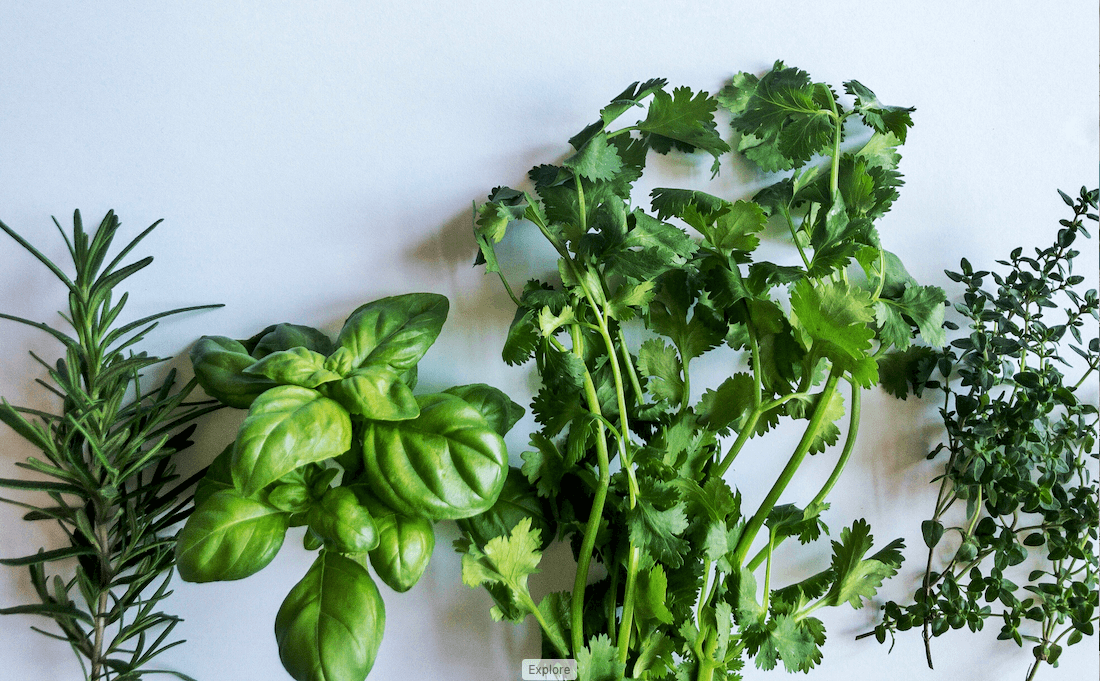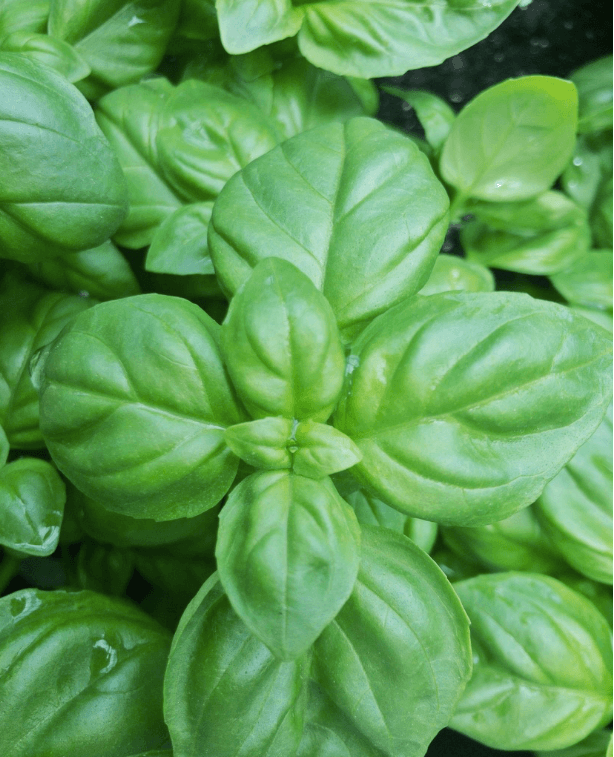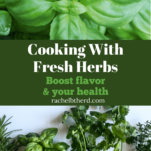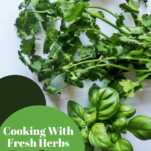Cooking with fresh herbs is a great way to add flavor, color, and nutrition to any dish. What most people don’t know, however, are the hidden health benefits they bring!
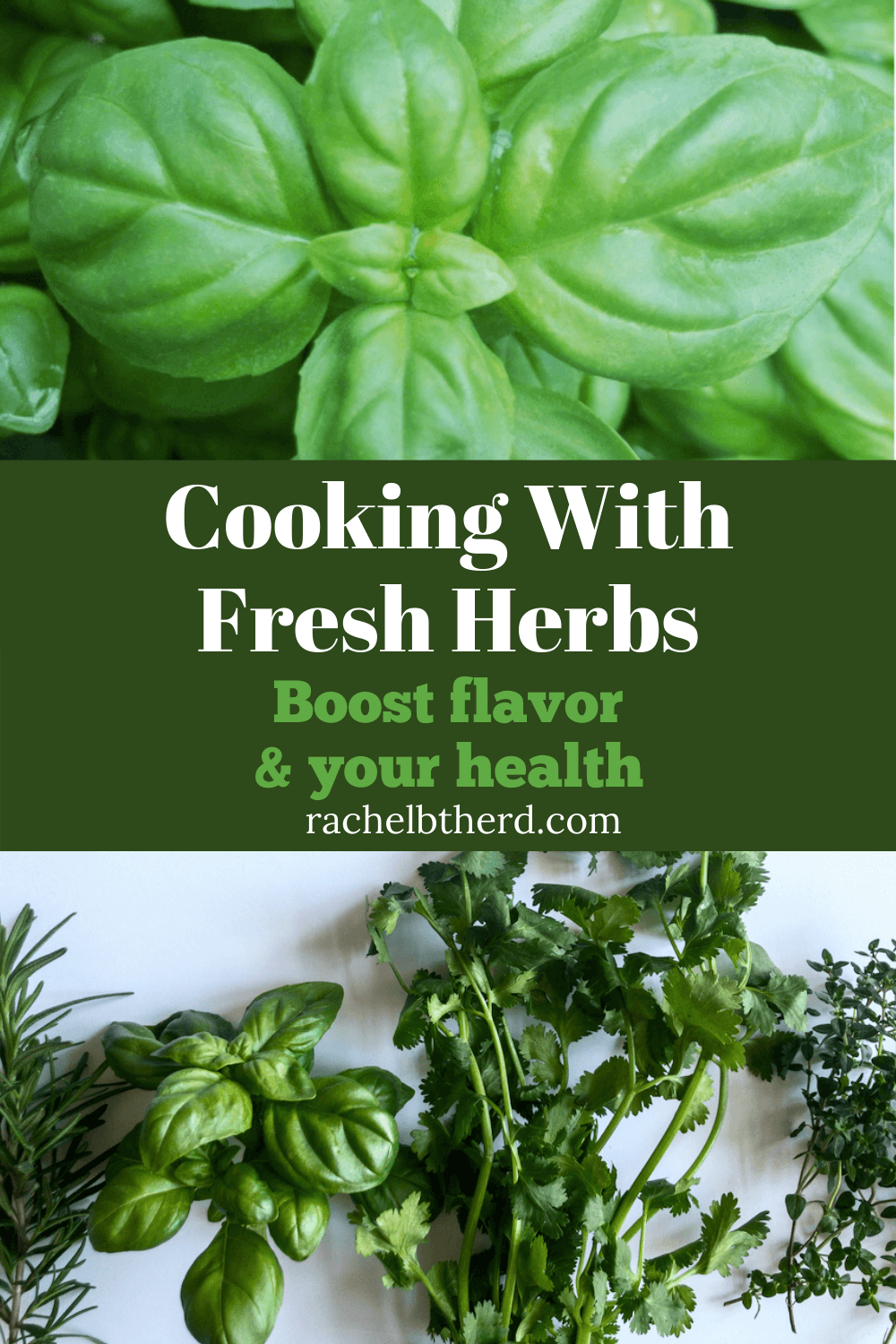
Gardening season is upon us! One thing that will really upgrade your cooking is fresh herbs. The addition of herbs can add vivid color, fresh flavor, and exciting aroma to nearly any meal. Best of all, you don’t have to be an experienced chef to take advantage of them.
You can easily purchase fresh herbs at any local grocery store. However, nothing compares to picking the herbs fresh from your garden as you need them.
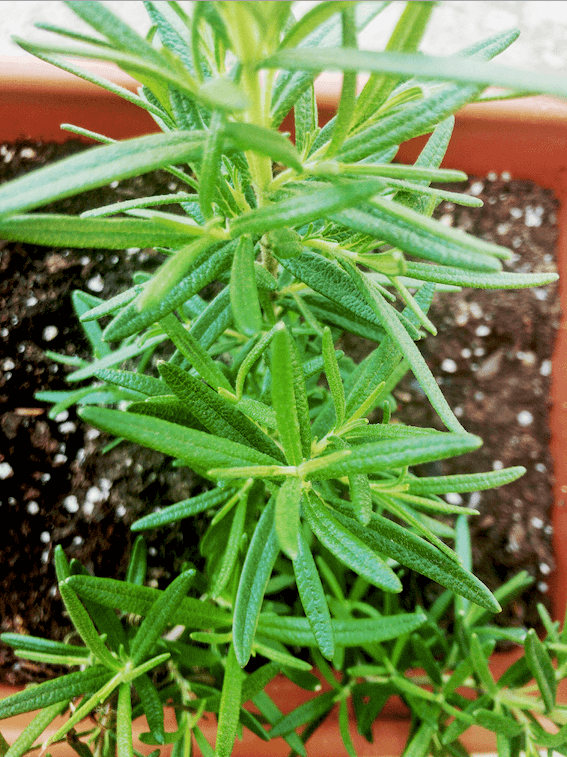
Growing your own herbs
How many times have you bought fresh herbs, using only a small amount in a recipe, and the rest wilts and goes to waste in your refrigerator? By growing your own, you can plant what you want, and use only the amount you need. The best part is more will grow back for next time.
Growing herbs is a great way to ensure you always have them fresh and ready at your disposal. If you feel like you can’t manage a full-fledged garden, growing herbs is also a great place to start because they require little maintenance. Also, when you have them more readily available, you’re more likely to incorporate them in home cooked meals.
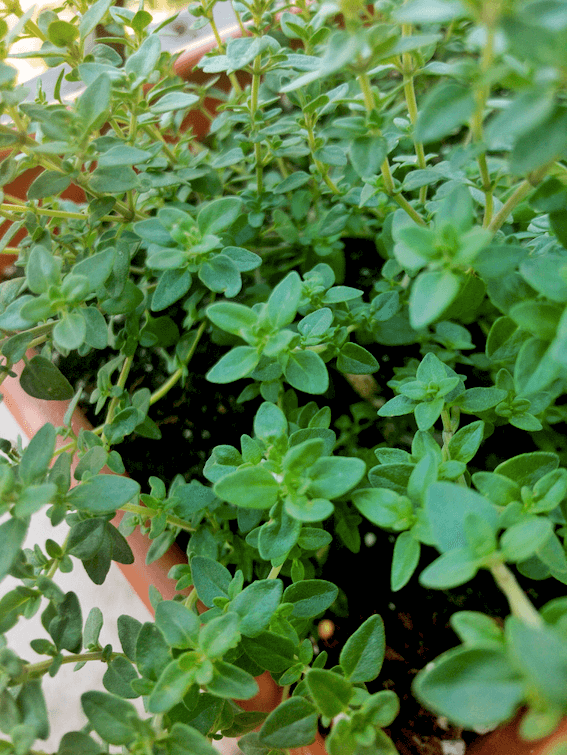
Don’t have a yard to grow your herbs? Unlike fruits and vegetables, which require a lot of time and space to grow properly, you can grow a small herb garden with very little space. Furthermore, herbs grow easily on small patios or windowsills with plenty of sunlight. All you need is a pot, soil, seeds (or purchase small herb plants at stores) and light to test your green thumb.
Adding herbs to make meals healthier
Herbs are bursting with flavor, though contain very few calories. Adding herbs to recipes also helps you cut back on fat, salt, and sugar without sacrificing flavor. There is no reason healthy food should taste bland!
A lot of patients I speak with tend to use salt as their go-to seasoning. But seasoning with extra salt can become problematic for those trying to control their blood pressure or keep their heart and kidneys healthy. Adding fresh herbs is a great way to reduce the amount of salt and still create a tasty and satisfying meal.
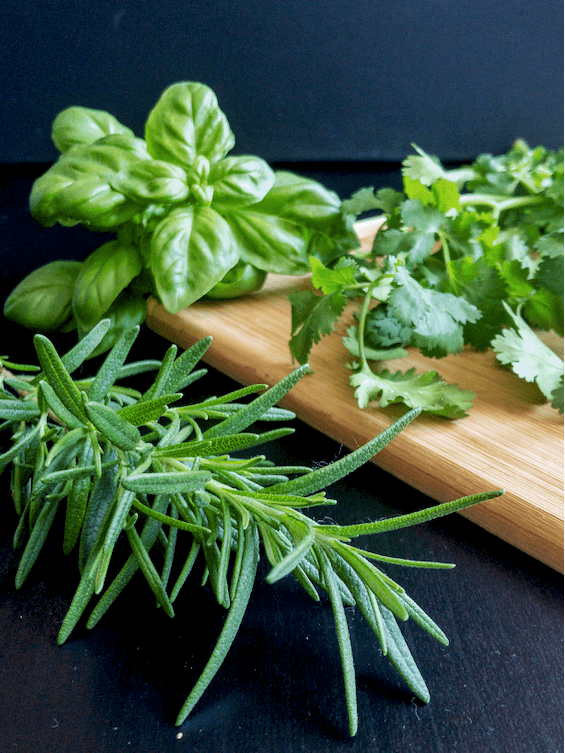
Nutritional benefits of herbs
Incorporating fresh herbs into your everyday cooking is a great way to excite your taste buds, but it also can be beneficial to your health. Herbs provide numerous vitamins and minerals such as vitamin A, C, K, B vitamins and some herbs contain minerals such as potassium, magnesium, calcium, iron and more. Furthermore, they are also powerful antioxidants.
Antioxidants protect the body from free radicals, which are little molecules that cause damage to healthy cells. Free radical damage plays a role in the development of many diseases including cardiovascular disease, Alzheimer’s, cancer, and more. Most people think of antioxidants as coming from fruits and vegetables. However, herbs are an amazing concentrated source of antioxidants, and an easy ingredient to start incorporating to protect your health.
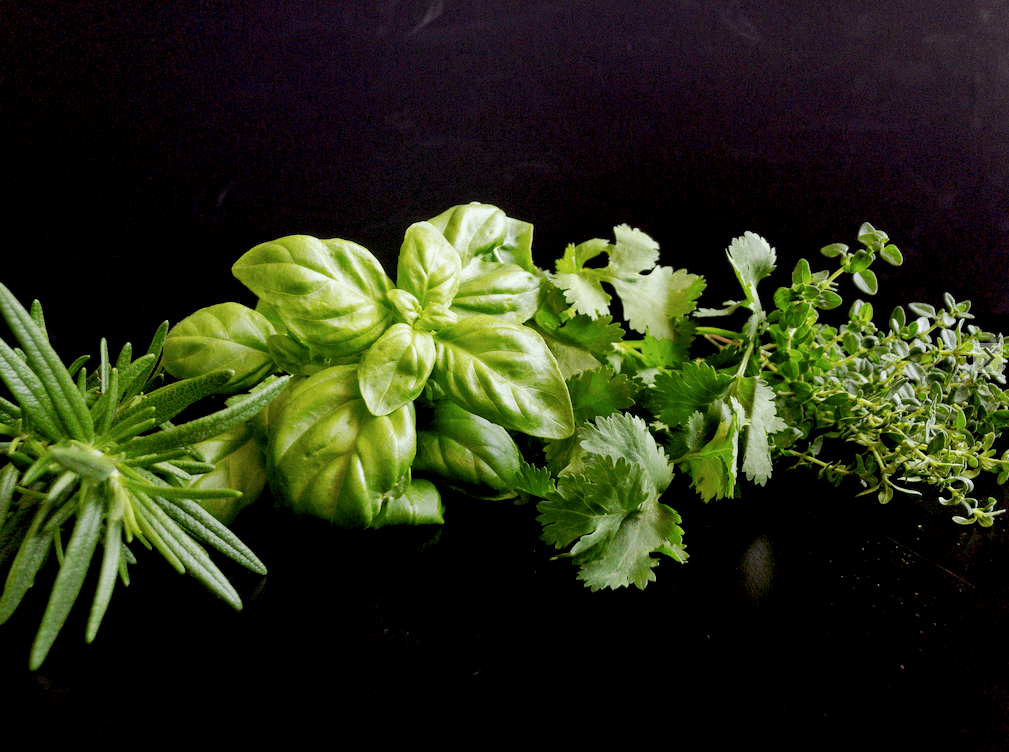
Here are a few of my favorite herbs:
- Basil
Flavor: sweet aroma with subtle peppery bite, slight anise
Pair with: Pasta, pizza, tomato sauce, salads, cheese dishes , tomatoes, vegetables, fish, meat, fruit (peaches, watermelon, strawberries), puree into a pesto, Thai dishes, sandwiches, curry
Tip: Basil needs regular pruning to facilitate a bushy plant with aromatic leaves. Another reason for pruning is to prevent the herb from blooming. The first sign you see of the plant trying to bloom (a lot of tiny leaves at the top), pinch the leaves/flower off. Consequently, if you allow the basil to bloom the leaves will start to taste bitter (or sometimes I think licorice tasting, which is off putting in recipes)
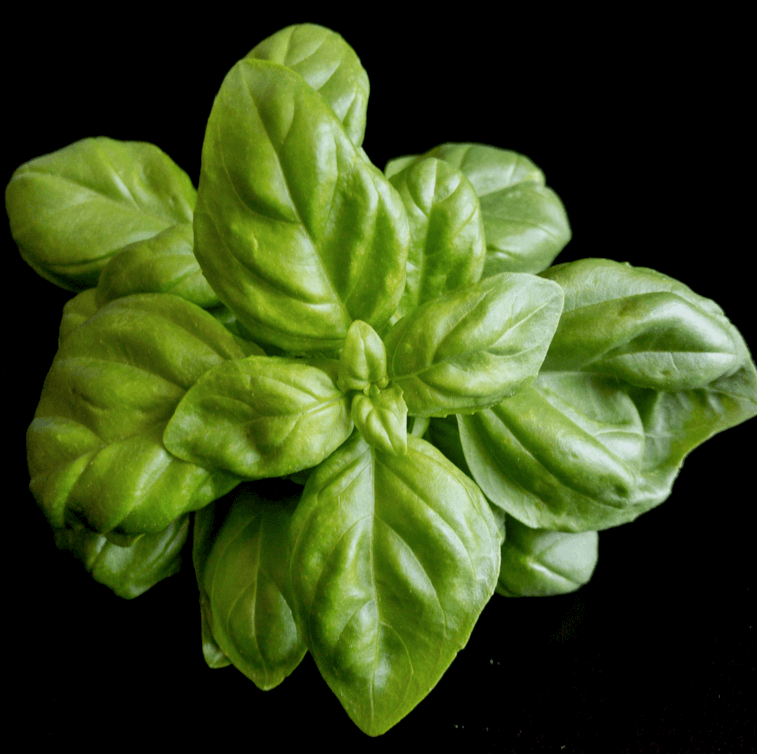
- Parsley
Flavor: fresh and earthy, slightly peppery and bitter
Pair with: dressings, salads, vegetables, fish, meat, pasta salad, really can garnish any dish
Fun fact: There are 2 common varieties of parsley that are similar in nature but vary in physical appearance and flavor. Italian leaf parsley has a robust strong flavor and flat leaves. Whereas, curly leaf parsley has a muted flavor, similar to grass but become more bitter over time, with ruffled leaves.
- Oregano
Flavor: earthy flavor, sweet and spicy, bitter
Pair with: most Italian dishes (pizza, pasta, sauces, etc..), eggs, cheese dishes, meat, seafood, vegetables, soups, stews, and more
Fun fact: Oregano is one of many herbs that is an antioxidant powerhouse. It’s also a source of fiber, vitamin K & E, iron, calcium and more.
- Rosemary
Flavor: piney aroma, slight peppery taste, citrus, evergreen or woodsy
Pair with: chicken, potatoes, marinades/dressings, meat, vegetables, breads, crackers
Cooking: Rosemary is one of few herbs that can withstand high temperatures without losing too much flavor. Tie twine around a few branches and add it to soups, stews, or when braising meat- be sure to remove before serving.
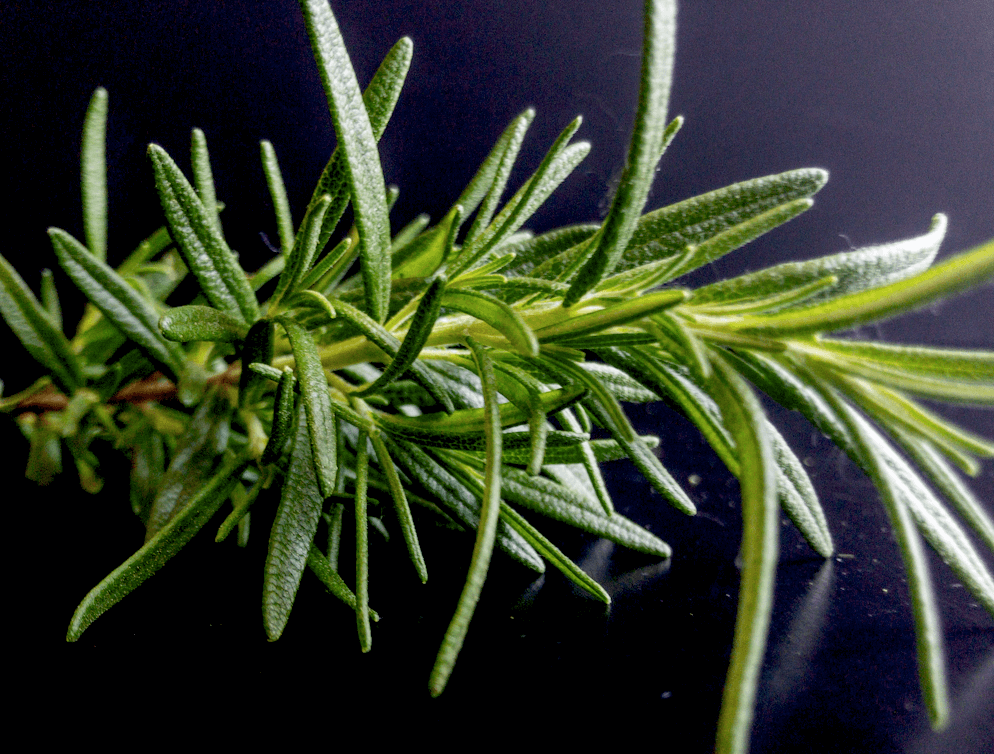
- Thyme
Flavor: earthy, little bit sweet, peppery, subtle mint
Pair with: meat, potatoes, salads, vegetables, soup
Thyme is a hardy perennial plant which means it will come back year after year.
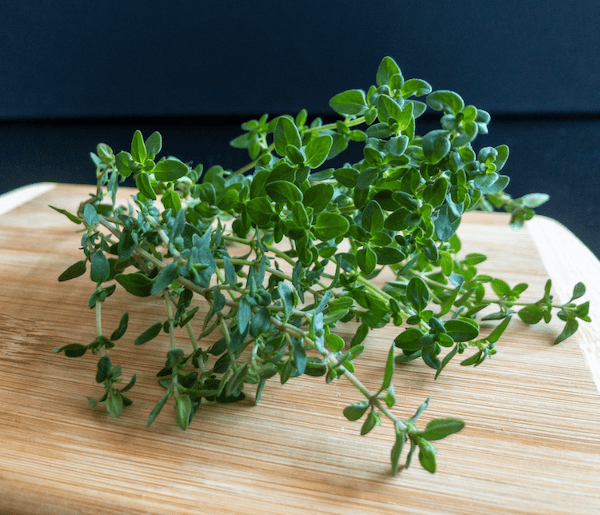
- Cilantro
Flavor: citrusy flavor
Pair with: guacamole, salsas, tacos, steak, chicken, rice, stir fry, beans, any Mexican dishes, curry
Fun Fact: Why does cilantro taste like heaven to some and soap to others? Well, a small percentage of the population have a heightened scent gene that makes you more sensitive to aldehyde found in cilantro. Unfortunately, when you pick up on the smell of the aldehydes you are left with the awful soapy taste in your mouth.
These are just the most common herbs I use, but there are so many varieties you can and should explore. For instance, mint, dill, lavender, lemon basil, tarragon, bay leaves, marjoram, sage, chives, peppermint and much more.
Cooking with herbs
You are only limited by your imagination when it comes to using herbs in the kitchen. In fact, you don’t need any culinary skills or special instructions to get more herbs into your life. You can simply add them to any dish you are making.
Some suggestions:
- Toss fresh herbs into salads
- Put a piece of basil on a sandwich
- Sprinkle parsley or chives into your eggs
- Add herbs to a homemade dressing or marinade
- Make a dry rub with herbs for meat
- Sprinkle pizza with fresh basil or oregano
- Stir herbs into roasted potatoes or vegetables
- Add herbs to potato salad, pasta salad or grain salads
- Top soups with fresh herbs
- Garnish drinks for a refreshing twist (mint cucumber water, lemon basil iced tea, basil watermelon cooler)
Soft stem herbs (parsley, cilantro, basil, chives) should be added towards the end of cooking to prevent them from turning a muddy color and losing its flavor. On the contrary, woody or hearty stemmed herbs (rosemary, thyme, oregano) can tolerate longer cooking and infuse their flavor into the dish.
Rule of thumb for herbs
A quick rule of thumb when cooking with herbs: fresh herbs are less potent than dried herbs. If a recipe calls for dried herbs but you want to use fresh, then all you have to do is triple the amount.
3 teaspoons (or 1 Tablespoon) fresh herbs= 1 teaspoon dried
Preserving fresh herbs
Fresh cut herbs perish quickly. The delicate herbs, such as basil and cilantro, won’t last more than a week in the refrigerator. Firmer types such as rosemary and thyme could last a couple of weeks. Ways to preserve:
- If you buy from the store, cut the rubber bands, and place the herbs in slightly damp paper towels in a plastic bag with holes, and place in the refrigerator
- Another option is to store in a glass of water with a plastic bag tented over the herbs- which can be stored at room temperature or the refrigerator
- Also, experiment with drying your own fresh herbs
Want to store them for longer?
To preserve your fresh herbs longer, chop them and place in ice cube trays with water or stock. Furthermore, I find the best way is to blend the herbs with a little bit of water or oil and place in ice cube trays. Once the ice cubes are frozen, place into plastic bags and you have herbs available to add to any dish all year long. Additionally, make a pesto and freeze, just don’t add the cheese until you thaw from the freezer to use.
I hope after reading this I have excited you and enticed you to start cooking with herbs more regularly! With this in mind, try cooking with a new herb, find a recipe or experiment yourself. As a result, you may find a new herb you love.
Also, check out some of my favorite summer recipes:
- Grilled Zucchini Corn Salad
- Watermelon, Arugula, and Feta Salad
- Sweet Potato Salad (no mayo!)
- Peaches and Cream Popsicles
- Lemon Garlic Marinated Chicken
- Mexican Street Corn Salad
Happy planting and cooking! Also, be sure to stay in touch and follow me on Facebook, Instagram and Pinterest
Save this post, and get cooking with herbs!
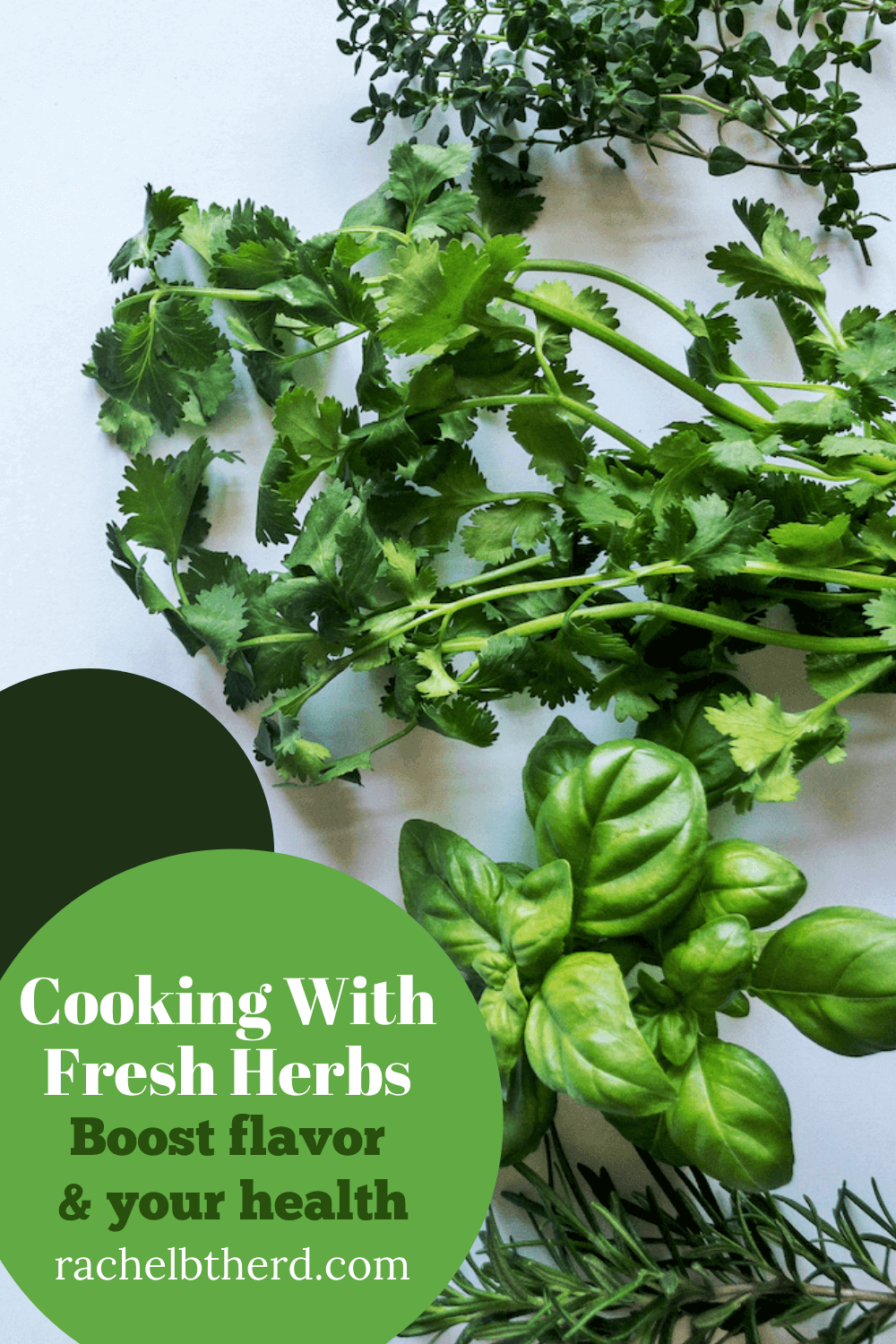
If you are not already following my blog, please subscribe to Rachel B the RD to have every new post delivered straight to your e-mail box! Sign up below!
